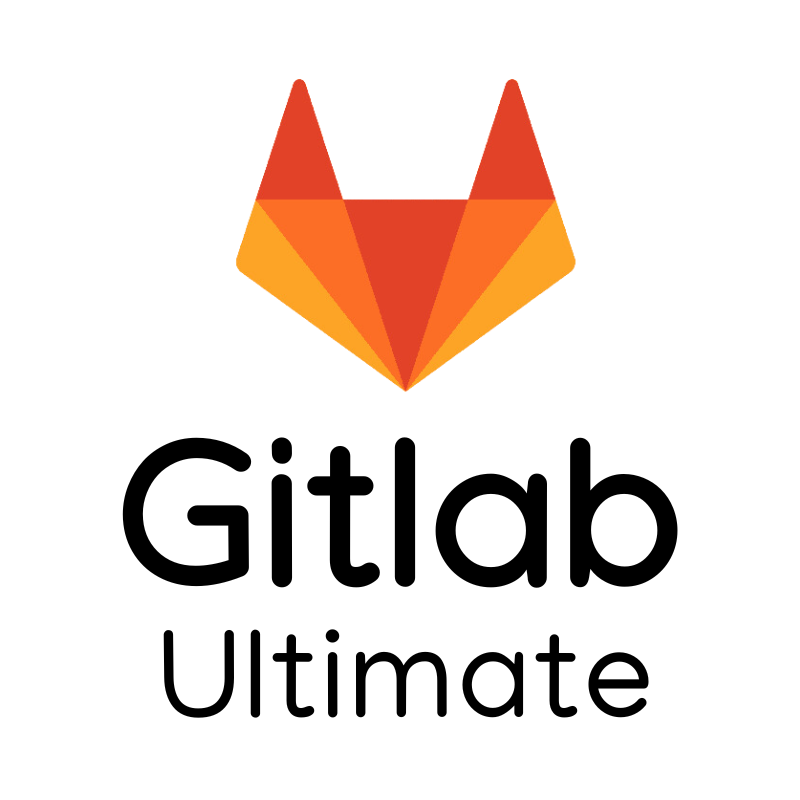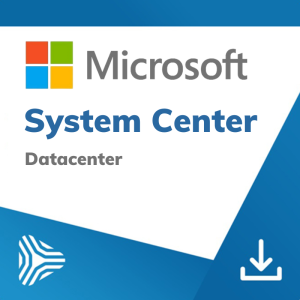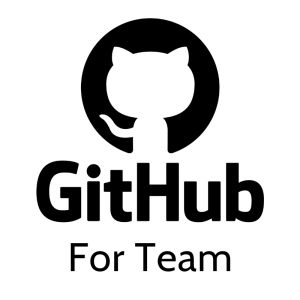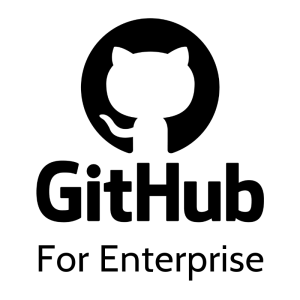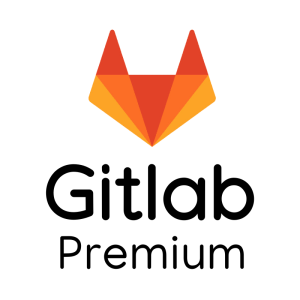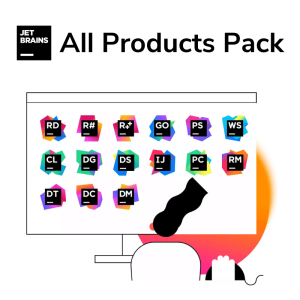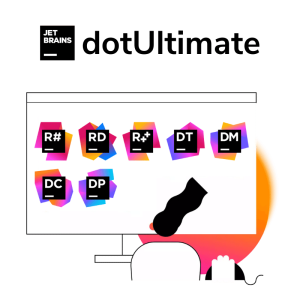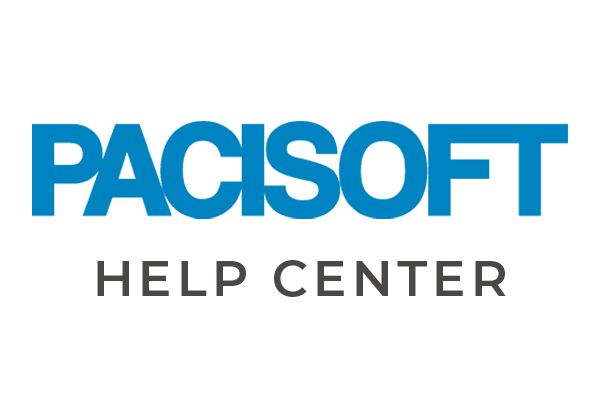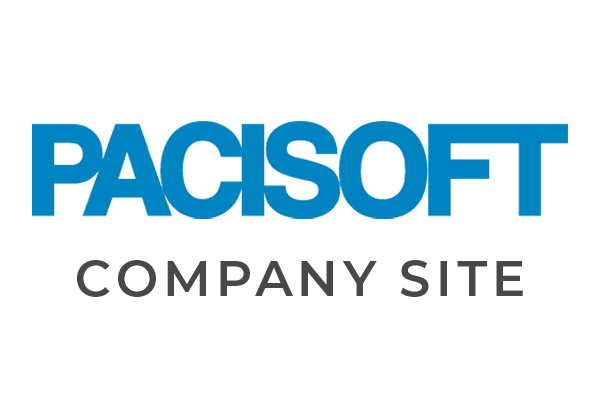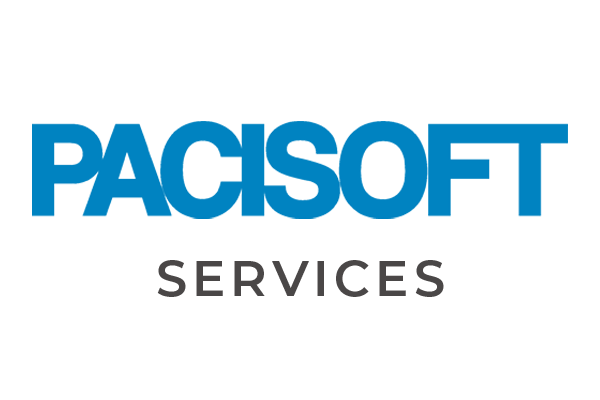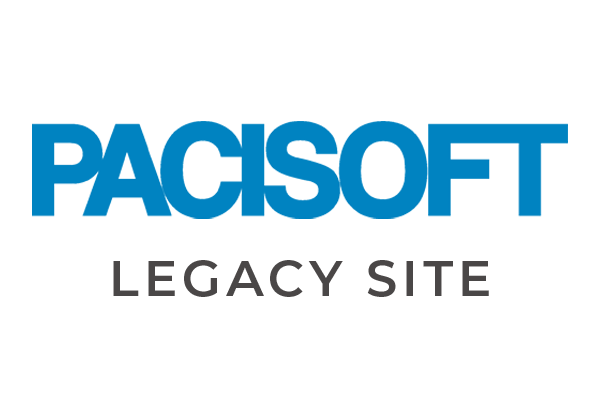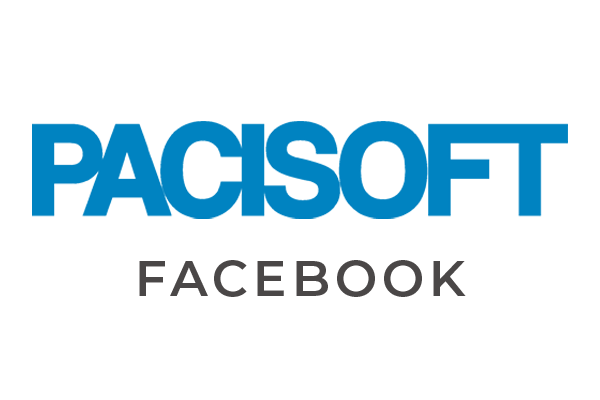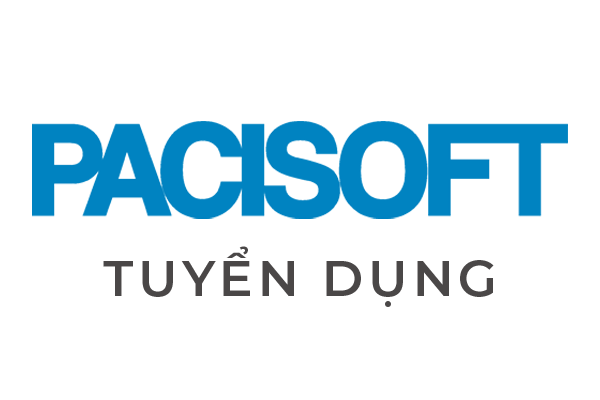GitLab Ultimate
GitLab Ulitmate - Giải pháp tối ưu hóa thời gian quản lý lý tưởng
GitLab Ultimate là phiên bản cao cấp của nền tảng GitLab, cung cấp những tính năng mạnh mẽ để quản lý mã nguồn và quy trình phát triển phần mềm.
Với GitLab Ultimate, bạn có thể tận dụng sức mạnh của GitLab để đạt được hiệu suất cao, tích hợp linh hoạt và quản lý toàn diện trong việc phát triển phần mềm.
GitLad Ulitmate có khả năng :
- Khả năng bảo mật nâng cao
- Giảm thiểu rủi ro bảo mật, tuân thủ
- Quản lý danh mục đầu tư và quản lý luồng giá trị
Biến thể (Tùy chọn)
- Chu kỳ: 1-3 năm
- Loại bản quyền: Thuê bao
- Tùy chọn mua hàng: Mua mới | Gia hạn
- Số lượng, đối tượng mua hàng, đóng gói,...xem tại thông số và cấp phép
Sản phẩm này đa dạng sự lựa chọn. Liên hệ ngay PACISOFT để nhận báo giá chi tiết về sản phẩm!
-
Tổng quan
-
Tính năng
-
So sánh
-
Thông số
-
Cấp phép
-
Yêu cầu hệ thống
-
Download
GitLab Ultimate có gì nổi bật ?
- Hỗ trợ ưu tiên
- Hỗ trợ nâng cấp trực tiếp
- Trình quản lý tài khoản kỹ thuật
GitLab Ultimate là một giải pháp phát triển phần mềm toàn diện, cung cấp một loạt các tính năng và công cụ phục vụ cho mọi khía cạnh của quy trình phát triển phần mềm. Với phiên bản này, bạn có thể quản lý mã nguồn, kiểm soát phiên bản, triển khai liên tục, tổ chức công việc và theo dõi hiệu suất dự án một cách dễ dàng và hiệu quả. Nó cung cấp tích hợp mạnh mẽ với các công cụ phổ biến khác như Kubernetes, Jira, Slack và nhiều hơn nữa. GitLab Ultimate giúp tăng cường sự hợp tác, nâng cao chất lượng sản phẩm và tăng tốc độ phát triển phần mềm của bạn.
Vì sao nên chọn GitLab Ultimate ?
- Tăng hiệu quả hoạt động
GitLab Ultimate cung cấp một giao diện duy nhất, có thể mở rộng cho DevSecOps trong toàn tổ chức, giảm chuyển giao giữa các công cụ và nhóm - nhờ đó cải thiện hiệu quả. - Cung cấp sản phẩm tốt hơn nhanh hơn
Với tính năng Quản lý luồng giá trị và Quản lý danh mục đầu tư từ đầu đến cuối, GitLab Ultimate cho phép khả năng hiển thị và minh bạch cao hơn giữa các dự án - giúp loại bỏ tắc nghẽn và phân phối sản phẩm nhanh hơn. - Giảm rủi ro bảo mật và tuân thủ
GitLab Ultimate giới thiệu thử nghiệm bảo mật tích hợp, tuân thủ và bảo mật phòng ngừa cho các ứng dụng gốc trên đám mây giúp bạn quản lý rủi ro bảo mật và đạt được sự tuân thủ quy định.
Tham khảo thêm:
- Phần mềm bản quyền chính hãng, giá tốt có tại Pacisoft với hơn 10,000 sản phẩm.
- Tham khảo thêm một số sản phẩm của Công cụ phát triển. Khám phá thêm các sản phẩm của Gitlab
Một số tính năng nổi bật của Gitlab Ultimate có thể kể đến:

Tham khảo đầy đủ bảng so sánh TẠI ĐÂY!
| Manufacturer/ Nhà sản xuất | GitLab |
| Header / Localization/ Khu vực kích hoạt | Toàn cầu |
| Category/ Danh mục sản phẩm | Bảo mật |
| Part Number (P/N)/ Mã sản phẩm | - |
| Collections/ Dòng sản phẩm | Công cụ phát triển |
| Packaged Quantity/ Số lượng đóng gói | 1 cho đến nhiều, theo yêu cầu đặt hàng |
| Software / Version/ Phiên bản | Mới nhất |
| Language/ Ngôn ngữ | English/ đa ngôn ngữ |
| Distribution Media/ Đóng gói | Download (ESD) |
| Operating System/ Platform/ Nền tảng sử dụng | Win/Mac/Linux |
| Product Type/ Loại sản phẩm | Perpetual License/ Có thời hạn gói Support |
| Software / License Type/ Loại giấy phép | New/ Renew/ Upgrade/ Extend/ Maintenance & Support |
| Length of term/ Thời hạn bản quyền | 1 – 3 năm |
| License management/ Quản lý bản quyền | Product Key Code |
| Customer secition/ Đối tượng khách hàng | Cá nhân/Doanh nghiệp |
| Advanced version/ Phiên bản cao cấp hơn | - |
| Comparison/ So sánh sản phẩm | Xem mô tả so sánh hoặc tài liệu đính kèm |
| Service & Support Basic/ Dịch vụ và hỗ trợ cơ bản | Basic by GitLab |
| Service & Support Advance/ Dịch vụ và hỗ trợ nâng cao | Tư vấn hệ thống/ Triển khai cài đặt/ Hỗ trợ 1 năm/ Đào tạo sử dụng |
| How to buy/ Mua như thế nào? | Ký hợp đồng và PACISOFT giao trong 1-7 ngày làm việc (cam kết nhanh nhất Việt Nam) |
| Tax & handling fee/ Thuế VAT & ph&a; xử lý | Phần mềm & dịch vụ phần mềm được miễn thuế VAT. |
| Thuế, phí khác có thể được áp dụng tại thời điểm mua hàng theo quy định của NN. |
Bạn có thể áp dụng một mã kích hoạt hoặc khóa cấp phép Cloud Licensing cho nhiều phiên bản tự quản lý nếu người dùng trên các phiên bản đó:
- Giống nhau hoặc là một phần của phiên bản sản xuất được cấp phép của bạn.
Ví dụ, nếu bạn có một phiên bản sản xuất được cấp phép của GitLab và bạn có các phiên bản khác với cùng danh sách người dùng, mã kích hoạt (hoặc khóa cấp phép) của phiên bản sản xuất sẽ được áp dụng. Ngay cả khi những người dùng này được cấu hình trong các nhóm và dự án khác nhau, miễn là danh sách người dùng giống nhau, mã kích hoạt (hoặc khóa cấp phép) sẽ được áp dụng.
Tuy nhiên, nếu có bất kỳ người dùng nào khác nhau trên phiên bản, bạn sẽ cần mua thêm một gói đăng ký.
Bạn không cần tải lên giấy phép cho tất cả các phiên bản. Giấy phép được lưu trữ trong cơ sở dữ liệu và sẽ được sao chép đến tất cả các phiên bản ứng dụng của bạn. Do đó, bạn chỉ cần tải lên tệp giấy phép vào một phiên bản ứng dụng duy nhất.
Giấy phép được lưu trữ trong cơ sở dữ liệu và được sao chép đến tất cả các phiên bản. Bạn chỉ cần tải lên giấy phép vào phiên bản Geo chính của bạn.
Mỗi người dùng duy nhất trong không gian tên được tính trong gói đăng ký. Điều này bao gồm người dùng được thêm ở mức nhóm, mức nhóm con và mức dự án. Mỗi chỗ ngồi được sử dụng, bất kể là người, công việc hay bot, đều được tính trong gói đăng ký. Chỉ có một ngoại lệ là thành viên có quyền Khách sử dụng gói đăng ký Cuối cùng (Ultimate).
Vì GitLab.com tính số chỗ ngồi đồng thời chứ không tính người dùng có tên, bạn có thể xóa thành viên và thêm thành viên mới theo ý muốn miễn là tổng số người dùng tại bất kỳ thời điểm nào không vượt quá số lượng giấy phép của bạn.
Mỗi chỗ ngồi được sử dụng, bất kể là người, quản trị viên, công việc hay bot, đều được tính trong gói đăng ký.
Dưới đây là những ngoại lệ duy nhất không được tính trong gói đăng ký:
Người dùng bị chặn trước khi gia hạn gói đăng ký sẽ không được tính là Người dùng hoạt động cho gói đăng ký gia hạn nhưng có thể được tính là người dùng điều chỉnh cho thời kỳ ban đầu mà họ đã được thêm vào.
Thành viên có quyền Khách trên gói đăng ký Cuối cùng không được tính vào gói đăng ký.
Ghost User, Support Bot, Migration Bot và Alert Bot không được tính trong gói đăng ký.
Nếu bạn đã thêm nhiều người dùng vào phiên bản GitLab EE của mình trong thời gian qua nhiều hơn số người dùng được cấp phép, những người dùng bổ sung sẽ phải trả phí khi gia hạn.
Nếu không thêm những người dùng này trong quá trình gia hạn, mã kích hoạt hoặc khóa cấp phép của bạn sẽ không hoạt động.
Bạn có thể tìm số người dùng vượt quá giấy phép bằng cách truy cập vào phần /admin của phiên bản GitLab của bạn (ví dụ: https://example.gitlab.com/admin). Bạn cũng có thể tìm thấy thông tin này bằng cách nhấp vào biểu tượng tuýt còi quản trị trong thanh điều hướng của phiên bản khi đăng nhập với quyền quản trị.
Trên màn hình tổng quan quản trị, bạn sẽ thấy số người dùng để nhập khi yêu cầu gia hạn gói đăng ký.
Người dùng gốc chỉ là tài khoản quản trị đầu tiên, được tạo mặc định trong các phiên bản tự quản lý của GitLab. Tương tự như bất kỳ người dùng nào khác, tài khoản này cũng chiếm một chỗ ngồi trong giấy phép. Vì vậy, hãy xem xét tuân thủ các quy tắc bảo mật tốt và chỉ định một hoặc nhiều "người thật sự" đảm nhận vai trò quản trị viên. Bạn được phép (và khuyến khích) đổi tên người dùng, hoặc thậm chí xóa hoặc vô hiệu hóa nó miễn là bạn đã giao cho người dùng khác vai trò quản trị viên.
Bạn có thể xem danh sách người dùng phải trả phí bằng cách truy cập vào không gian tên nhóm của bạn, nhấp vào Cài đặt và sau đó chọn Billing; cuộn xuống trang, bạn sẽ thấy số chỗ ngồi đã được sử dụng bởi người dùng trong nhóm cùng với tổng số người dùng.
Chúng tôi cũng đã phát hành một điểm cuối API về nhóm và thành viên có thể được sử dụng để lấy danh sách người dùng phải trả phí cho gói đăng ký của bạn.
Danh sách nhận được sẽ cung cấp các thành viên hiện có trong tài khoản của bạn vào thời điểm yêu cầu. Nếu bạn đang tìm kiếm ngày và giờ cụ thể mà một người dùng đã được thêm vào một nhóm, vui lòng sử dụng tính năng Sự kiện Kiểm toán hoặc API Sự kiện Kiểm toán.
Hardware requirements
Storage
The necessary hard drive space largely depends on the size of the repositories you want to store in GitLab but as a guideline you should have at least as much free space as all your repositories combined take up.
The Omnibus GitLab package requires about 2.5 GB of storage space for installation.
If you want to be flexible about growing your hard drive space in the future consider mounting it using logical volume management (LVM) so you can add more hard drives when you need them.
Apart from a local hard drive you can also mount a volume that supports the network file system (NFS) protocol. This volume might be located on a file server, a network attached storage (NAS) device, a storage area network (SAN) or on an Amazon Web Services (AWS) Elastic Block Store (EBS) volume.
If you have enough RAM and a recent CPU the speed of GitLab is mainly limited by hard drive seek times. Having a fast drive (7200 RPM and up) or a solid state drive (SSD) improves the responsiveness of GitLab.
Because file system performance may affect the overall performance of GitLab, we don’t recommend using cloud-based file systems for storage.
NFS for Git repository storage is deprecated. See our official Statement of Support for further information.
CPU
CPU requirements are dependent on the number of users and expected workload. Your exact needs may be more, depending on your workload. Your workload is influenced by factors such as - but not limited to - how active your users are, how much automation you use, mirroring, and repository/change size.
The following is the recommended minimum CPU hardware guidance for a handful of example GitLab user base sizes.
4 cores is the recommended minimum number of cores and supports up to 500 users
8 cores supports up to 1000 users
More users? Consult the reference architectures page
Memory
Memory requirements are dependent on the number of users and expected workload. Your exact needs may be more, depending on your workload. Your workload is influenced by factors such as - but not limited to - how active your users are, how much automation you use, mirroring, and repository/change size.
The following is the recommended minimum Memory hardware guidance for a handful of example GitLab user base sizes.
4 GB RAM is the required minimum memory size and supports up to 500 users
Our Memory Team is working to reduce the memory requirement.
8 GB RAM supports up to 1000 users
More users? Consult the reference architectures page
In addition to the above, we generally recommend having at least 2 GB of swap on your server, even if you currently have enough available RAM. Having swap helps to reduce the chance of errors occurring if your available memory changes. We also recommend configuring the kernel’s swappiness setting to a low value like 10 to make the most of your RAM while still having the swap available when needed.
Although excessive swapping is undesired and degrades performance, it is an extremely important last resort against out-of-memory conditions. During unexpected system load, such as OS updates or other services on the same host, peak memory load spikes could be much higher than average. Having plenty of swap helps avoid the Linux OOM killer unsafely terminating a potentially critical process, such as PostgreSQL, which can have disastrous consequences.
Database
PostgreSQL is the only supported database, which is bundled with the Omnibus GitLab package. You can also use an external PostgreSQL database. Support for MySQL was removed in GitLab 12.1.
PostgreSQL Requirements
The server running PostgreSQL should have at least 5-10 GB of storage available, though the exact requirements depend on the number of users.
We highly recommend using at least the minimum PostgreSQL versions (as specified in the following table) as these were used for development and testing:
| GitLab version | Minimum PostgreSQL version |
| 13.0 | 11 |
| 14.0 | 12.7 |
| 15.0 | 12.10 |
| 16.0 | 13.6 |
You must also ensure the following extensions are loaded into every GitLab database. Read more about this requirement, and troubleshooting.
| Extension | Minimum GitLab version |
| pg_trgm | 8.6 |
| btree_gist | 13.1 |
| plpgsql | 11.7 |
The following managed PostgreSQL services are known to be incompatible and should not be used:
| GitLab version | Managed service |
| 14.4+ | Amazon Aurora (see 14.4.0) |
Additional requirements for GitLab Geo
If you’re using GitLab Geo, we strongly recommend running Omnibus GitLab-managed instances, as we actively develop and test based on those. We try to be compatible with most external (not managed by Omnibus GitLab) databases (for example, AWS Relational Database Service (RDS)), but we can’t guarantee compatibility.
Operating system locale compatibility and silent index corruption
Changes to locale data in glibc means that PostgreSQL database files are not fully compatible between different OS releases.
To avoid index corruption, check for locale compatibility when:
Moving binary PostgreSQL data between servers.
Upgrading your Linux distribution.
Updating or changing third party container images.
Gitaly Cluster database requirements
Read more in the Gitaly Cluster documentation.
Exclusive use of GitLab databases
Databases created or used for GitLab, Geo, Gitaly Cluster, or other components should be for the exclusive use of GitLab. Do not make direct changes to the database, schemas, users, or other properties except when following procedures in the GitLab documentation or following the directions of GitLab Support or other GitLab engineers.
The main GitLab application currently uses three schemas:
The default public schema
gitlab_partitions_static (automatically created)
gitlab_partitions_dynamic (automatically created)
No other schemas should be manually created.
GitLab may create new schemas as part of Rails database migrations. This happens when performing a GitLab upgrade. The GitLab database account requires access to do this.
GitLab creates and modifies tables during the upgrade process, and also as part of standard operations to manage partitioned tables.
You should not modify the GitLab schema (for example, adding triggers or modifying tables). Database migrations are tested against the schema definition in the GitLab codebase. GitLab version upgrades may fail if the schema is modified.
Puma settings
The recommended settings for Puma are determined by the infrastructure on which it’s running. The GitLab Linux package defaults to the recommended Puma settings. Regardless of installation method, you can tune the Puma settings:
If you’re using the GitLab Linux package, see Puma settings for instructions on changing the Puma settings.
If you’re using the GitLab Helm chart, see the webservice chart.
Puma workers
The recommended number of workers is calculated as the highest of the following:
2
A combination of CPU and memory resource availability (see how this is configured automatically for the Linux package).
Take for example the following scenarios:
A node with 2 cores / 8 GB memory should be configured with 2 Puma workers.
A node with 4 cores / 4 GB memory should be configured with 2 Puma workers.
A node with 4 cores / 8 GB memory should be configured with 4 Puma workers.
So, the highest from 2 and 4 is 4.
You can increase the number of Puma workers, provided enough CPU and memory capacity is available. A higher number of Puma workers usually helps to reduce the response time of the application and increase the ability to handle parallel requests. You must perform testing to verify the optimal settings for your infrastructure.
Puma threads
The recommended number of threads is dependent on several factors, including total memory, and use of legacy Rugged code.
If the operating system has a maximum 2 GB of memory, the recommended number of threads is 1. A higher value results in excess swapping, and decrease performance.
If legacy Rugged code is in use, the recommended number of threads is 1.
In all other cases, the recommended number of threads is 4. We don’t recommend setting this higher, due to how Ruby MRI multi-threading works.
Puma per worker maximum memory
By default, each Puma worker is limited to 1.2 GB of memory. You can adjust this memory setting and should do so if you must increase the number of Puma workers.
Redis
Redis stores all user sessions and the background task queue.
The requirements for Redis are as follows:
Redis 6.0 is required from GitLab 16.0 and later.
Redis Cluster mode is not supported. Redis Standalone must be used.
Storage requirements for Redis are minimal, about 25 kB per user on average.
Sidekiq
Sidekiq processes the background jobs with a multithreaded process. This process starts with the entire Rails stack (200 MB+) but it can grow over time due to memory leaks. On a very active server (10,000 billable users) the Sidekiq process can use 1 GB+ of memory.
Prometheus and its exporters
Prometheus and its related exporters are enabled by default to enable in depth monitoring of GitLab. With default settings, these processes consume approximately 200 MB of memory.
If you would like to disable Prometheus and it’s exporters or read more information about it, check the Prometheus documentation.
GitLab Runner
We strongly advise against installing GitLab Runner on the same machine you plan to install GitLab on. Depending on how you decide to configure GitLab Runner and what tools you use to exercise your application in the CI environment, GitLab Runner can consume significant amount of available memory.
Memory consumption calculations, that are available above, are not valid if you decide to run GitLab Runner and the GitLab Rails application on the same machine.
It’s also not safe to install everything on a single machine, because of the security reasons, especially when you plan to use shell executor with GitLab Runner.
We recommend using a separate machine for each GitLab Runner, if you plan to use the CI features. The GitLab Runner server requirements depend on:
The type of executor you configured on GitLab Runner.
Resources required to run build jobs.
Job concurrency settings.
Because the nature of the jobs varies for each use case, you must experiment by adjusting the job concurrency to get the optimum setting.
For reference, the SaaS runners on Linux are configured so that a single job runs in a single instance with:
1 vCPU.
3.75 GB of RAM.
Supported web browsers
With GitLab 13.0 (May 2020) we have removed official support for Internet Explorer 11.
GitLab supports the following web browsers:
Mozilla Firefox
Google Chrome
Chromium
Apple Safari
Microsoft Edge
For the listed web browsers, GitLab supports:
The current and previous major versions of browsers.
The current minor version of a supported major version.
We don’t support running GitLab with JavaScript disabled in the browser and have no plans of supporting that in the future because we have features such as issue boards which require JavaScript extensively.
Security
After installation, be sure to read and follow guidance on maintaining a secure GitLab installation.
In GitLab 13.7 and later, the Maximum Users value found in self-managed instances of GitLab reflects the maximum daily active user count recorded in the instance during the current license period.
Prior to GitLab 13.7, the Maximum Users value found in self-managed instances of GitLab reflects the maximum daily active user count recorded in the instance for the period of 1 year prior to the expiration date of the license. Since most GitLab subscriptions are annual, this means the Maximum User count in these cases is simply the highest number of active users at any one time during that subscription. However, for non-standard contract lengths (8 months, 14 months, 24 months), the Maximum Users count is not reflective of the entire subscription term, but rather for the 12 months prior to the expiration date.
The seats for your license are generic and are not specific to a user. GitLab does
not use a named license model.
The seats you buy can be distributed however you choose. If a user leaves your
organization, you can remove or block that user to free the seat. This seat can
then be used by another user.
Note that this may result in a user over license if your maximum users has been reached.
You can add users to your subscription any time during the subscription period. The cost of additional users added during the subscription period will be prorated from the date of purchase through the end of
the subscription period.
To do this:
Log into your account via the Customers Portal
Select Manage Purchases from the menu.
Select the Add more seats button.
Enter the amount of additional users (E.g. You currently have 10 users and want to add 5 more users, enter 5).
Select Proceed to checkout.
Review the Subscription Summary. Note you will only be charged for the net additional users.
Update or add the desired payment information.
Select Purchase Seats
The following will be emailed to you:
A confirmation of purchase and payment receipt. You can also access this information in the Customers Portal under View invoices.
For self-managed instances on legacy or offline licensing, you will receive a new license key. Upload this license to your instance to use it.
Maxmimum Users will be reset once the current license is expired and a new license with a new service period is uploaded. See Maximum Users.
Users over license can be reset either:
During the current license service period by Adding more seats to the subscription so that your total Users in License meet or exceed your current Maximum Users
By paying for True-Up Users at your renewal. During your renewal, you can pay for the overage from your prior subscription period, these are called "True-Up Users".
Trải nghiệm dùng thử một phần mềm với đầy đủ các tính năng bản quyền ngay hôm nay.
Download dùng thử miễn phí, TẠI ĐÂY.
Hãy tìm ứng dụng trong danh sách phía trên và nhấp vào nút Dùng thử miễn phí. Sau đó, hãy làm theo hướng dẫn để đăng ký dùng thử miễn phí và tải xuống ứng dụng bạn muốn sử dụng.
*Liên hệ Pacisoft để được hỗ trợ nhanh chóng nhất!

